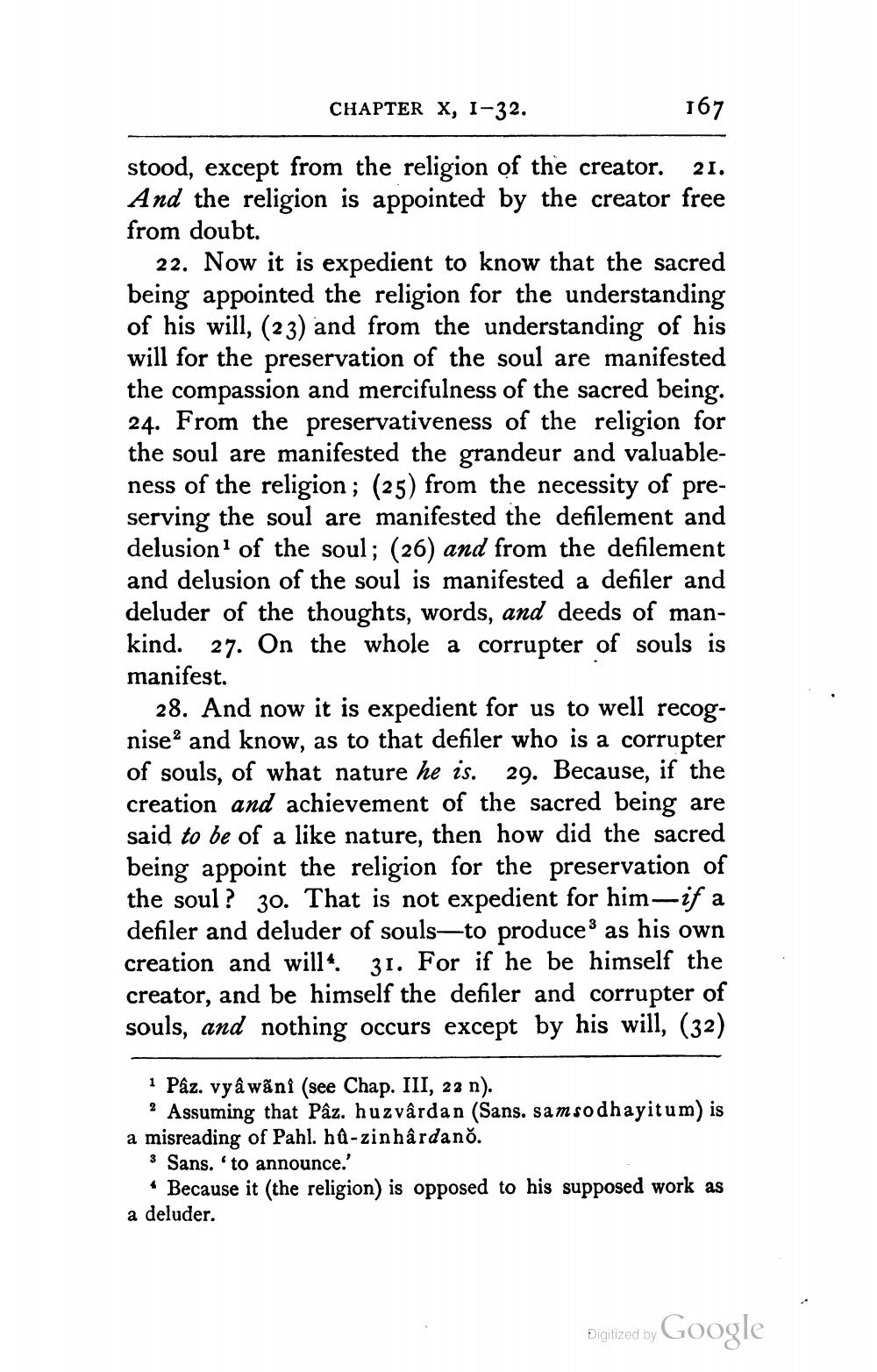________________
CHAPTER X, 1-32.
167
stood, except from the religion of the creator. 21. And the religion is appointed by the creator free from doubt.
22. Now it is expedient to know that the sacred being appointed the religion for the understanding of his will, (23) and from the understanding of his will for the preservation of the soul are manifested the compassion and mercifulness of the sacred being. 24. From the preservativeness of the religion for the soul are manifested the grandeur and valuableness of the religion ; (25) from the necessity of preserving the soul are manifested the defilement and delusion of the soul; (26) and from the defilement and delusion of the soul is manifested a defiler and deluder of the thoughts, words, and deeds of mankind. 27. On the whole a corrupter of souls is manifest.
28. And now it is expedient for us to well recogniseand know, as to that defiler who is a corrupter of souls, of what nature he is. 29. Because, if the creation and achievement of the sacred being are said to be of a like nature, then how did the sacred being appoint the religion for the preservation of the soul ? 30. That is not expedient for him- if a defiler and deluder of souls—to produce as his own creation and will4. 31. For if he be himself the creator, and be himself the defiler and corrupter of souls, and nothing occurs except by his will, (32)
i Paz. vyâ wăni (see Chap. III, 22 n).
? Assuming that Pâz. huzvârdan (Sans. samsodha yitum is a misreading of Pahl. hû-zin hârdano.
3 Sans. 'to announce.'
. Because it (the religion) is opposed to his supposed work as a deluder.
Digitized by Google




